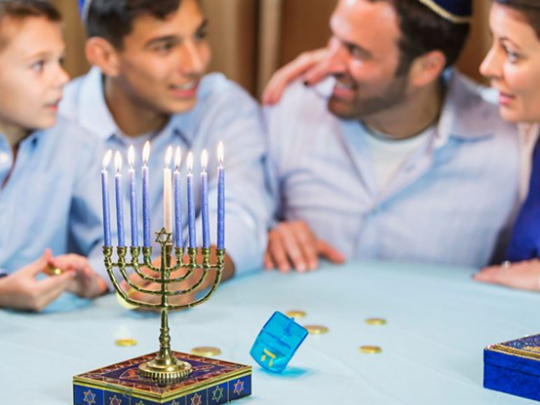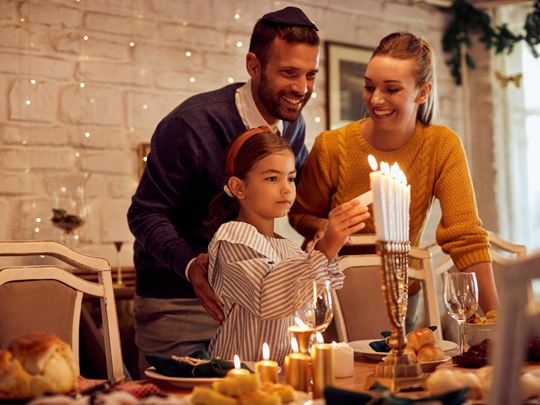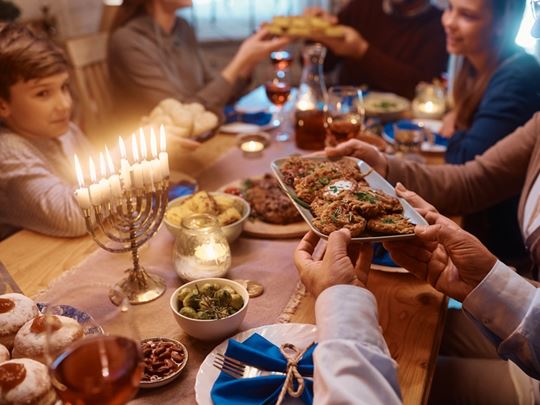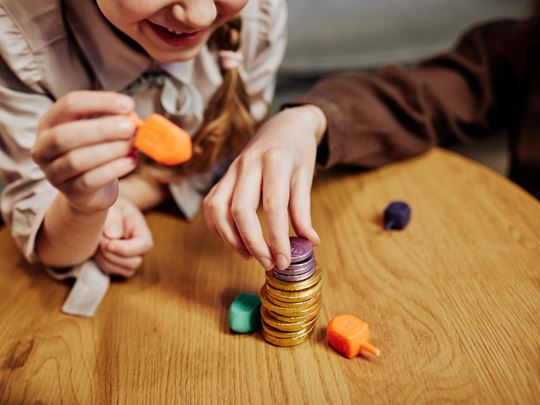Celebrating Hanukkah with a Foster Child
The word Hanukkah (Chanukah) means ‘Dedication’ in Hebrew and it celebrates a miracle that happened in Jerusalem over 2000 years ago. Judaism follows a lunar calendar, so holiday dates shift every year either in November or December and lasts for 8 days.

Happy Hanukkah! May your candles burn bright this season.
Holidays can be an emotional time for children in foster care, they can reflect on being away from their birth family at such poignant times or develop new or develop new positive memories with their foster families which weren’t possible before living in foster care.
As we approach Hanukkah (Chanukah), the Jewish festival of lights, here is some more information about Hanukkah as well as some tips to help make this 8-day celebration as special as possible.
What is Hanukkah?
The word Hanukkah means ‘re-dedication’ in Hebrew, and is a celebration that honours the Jewish struggle and triumph against the Seleucids (Syrian-Greeks) in second century B.C. At the time, the Seleucid king, named Antiochus, had taken over Israel and prohibited Jews from worshipping God. This led to a group of Jews called the Maccabees revolting against the Seleucids and their religious persecution, eventually driving them out of Israel after a 3-year war.
To commemorate their triumph, the group’s leader, Judah Maccabee, decided they would reclaim the Holy Temple in Jerusalem, as it had nearly been destroyed. They restored it, and upon completion, wanted to re-dedicate it to God by lighting the menorah (a seven-branched candelabra). They only had one vial of oil which would normally have lasted just one day. However, miraculously the lamp stayed alight for 8 days, inspiring the 8-day long celebration of Hanukkah and its moniker as the festival of lights.
When is Hanukkah?
This year (2023), Hanukkah will begin on the evening of Thursday 7 December and end on Friday 15 December. The reason the dates change each year is to do with calendars. The Jewish or Hebrew calendar is lunisolar, so it takes into consideration the phases of the moon to determine the beginning and end of each month.
It’s a complicated formula, but it means a year in the Hebrew calendar can range from 353 to 385 days. While Hanukkah always starts on the eve of 25 Kislev – the day of the miracle – this falls on a different date each year in the 365-day Gregorian calendar. However, it will always land late November or early-to-mid December.
How to celebrate Hanukkah?
The defeat of the Seleucid empire in the face of adversity is a tale that demonstrates finding the light during difficult times. That's why Hanukkah celebrations are heartwarming, joyous and steeped in tradition. When you become a foster parent to a Jewish child, if you follow these traditions yourself, talk to your foster child about their own traditions and try to incorporate some of them into your own. This way you’ll help your foster child feel included and important.
If you are not Jewish yourself we have tips below to ensure you can help your child celebrate this important time of the year.

Lighting the menorah or hanukkiah
Lighting the menorah or hanukkiah each evening is considered the most important of all Hanukkah traditions, as it directly relates to when the Maccabees rededicated the Holy Temple in Jerusalem back to God. A menorah has 7 branches and is the one lit in the Holy Temple over 2,000 years ago. Many families use a hanukkiah, which has 8 branches to symbolise the number of days the oil stayed burning. Plus, there is a ninth branch to hold the ‘servant’ candle, which is used to light the other candles.
Gifts
Children can often receive a gift on each night of Hanukkah, which can come in the form of Hanukkah money (Gelt). Some families exchange presents with each other; however, gift giving will vary from family to family based on their own traditions. Your foster child may not be used to receiving gifts, so this could be a wonderful way to show how loved and cared for they are.

Food
What holiday isn’t celebrated with a feast of delicious food? Oil features a lot in the cooking of Hanukkah meals and treats to symbolise the miracle of oil. Here are 5 popular Hanukkah dishes to tuck into with your foster child this year.
- Latkes – potato cakes fried in oil
- Sufganiyot – doughnuts fried in oil
- Gelt – chocolate wrapped coins
- Kugel – noodle casserole dish
- Brisket – braised meat dish with potatoes and vegetables

Games
The most common game played is gambling game that involves a four-sided spinning top, called a dreidel. The dreidel will have four Hebrew letters — nun, gimel, hey, and shin — on each side, to represent the words nes gadol hayah sham, meaning ‘a great miracle happened there’. The Hanukkah money a child receives in the way of Gelt is often used in place of real money to make this game family-friendly.
Could you foster a Jewish child?
We believe every child deserves to grow up in a loving, nurturing home that can also meet their cultural and religious needs. If you could give a Jewish child in care the love, kindness and support they desperately need to help them reach their full potential, please get in touch. You could make a real, long-lasting difference to a vulnerable child in your community.
Why children in care need to stay connected to their religion
At ACS, we strongly believe it’s crucial for children in care to feel close to their religion and culture. From our experience, the best outcomes are achieved when a child is placed with a family that knows, understands and respects the child’s religious and cultural needs. That’s why we’re one of the only independent faith-based fostering agencies that provide bespoke cultural and faith-based foster placements. Here’s why it’s important for children to stay connected to their faith during their time in foster care...





